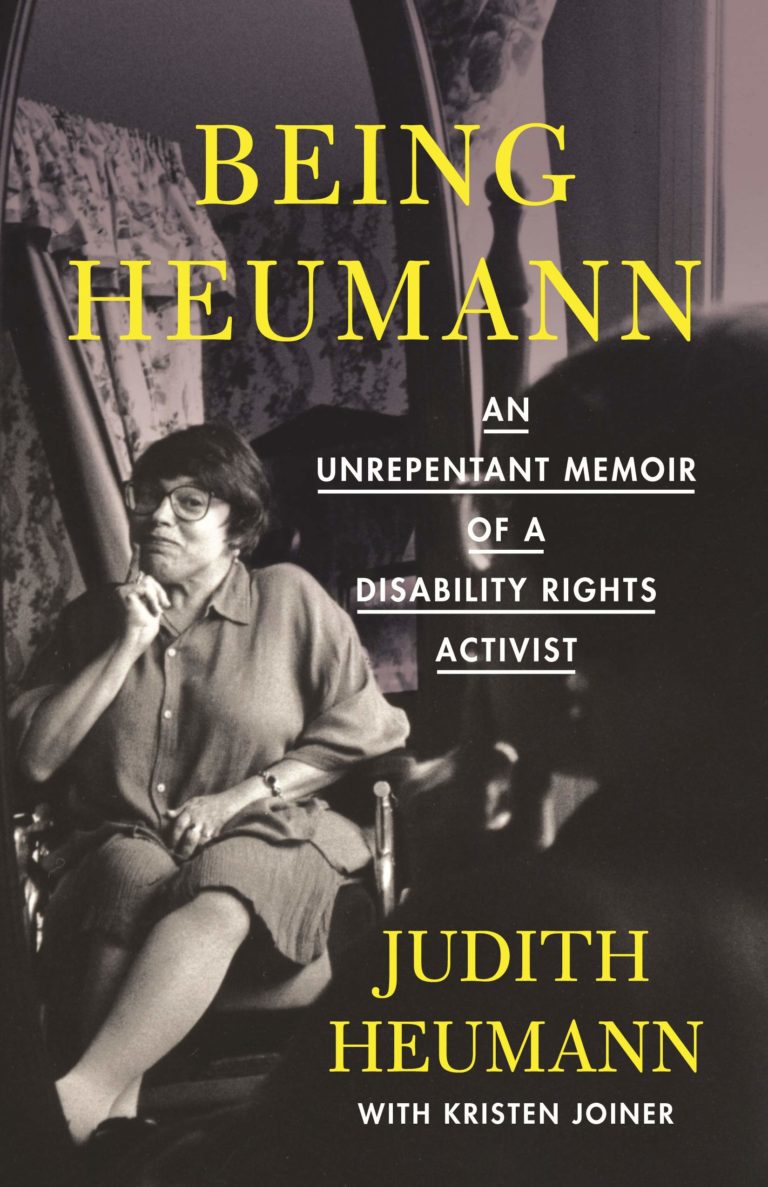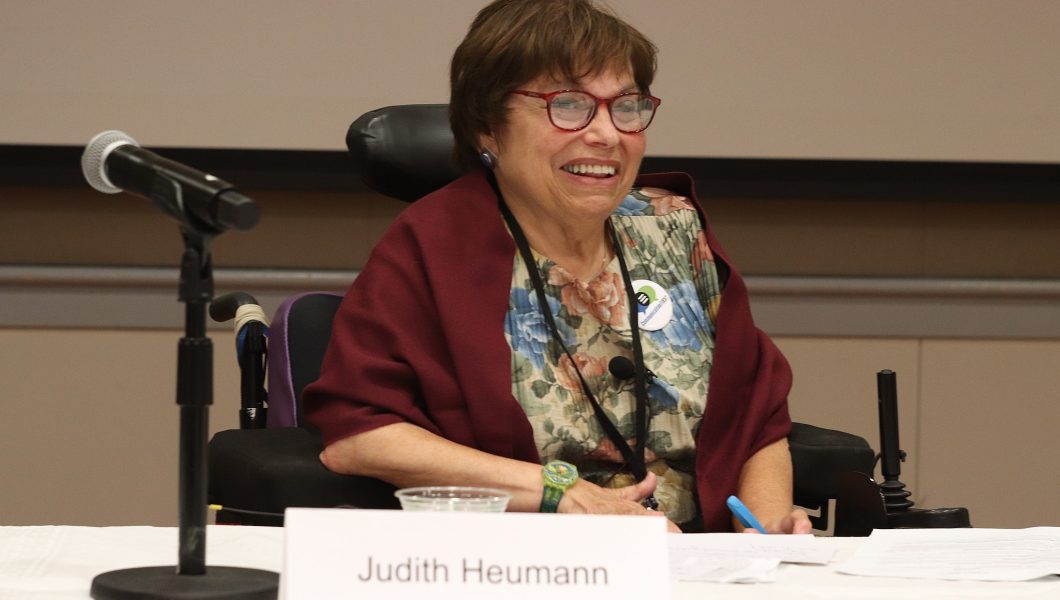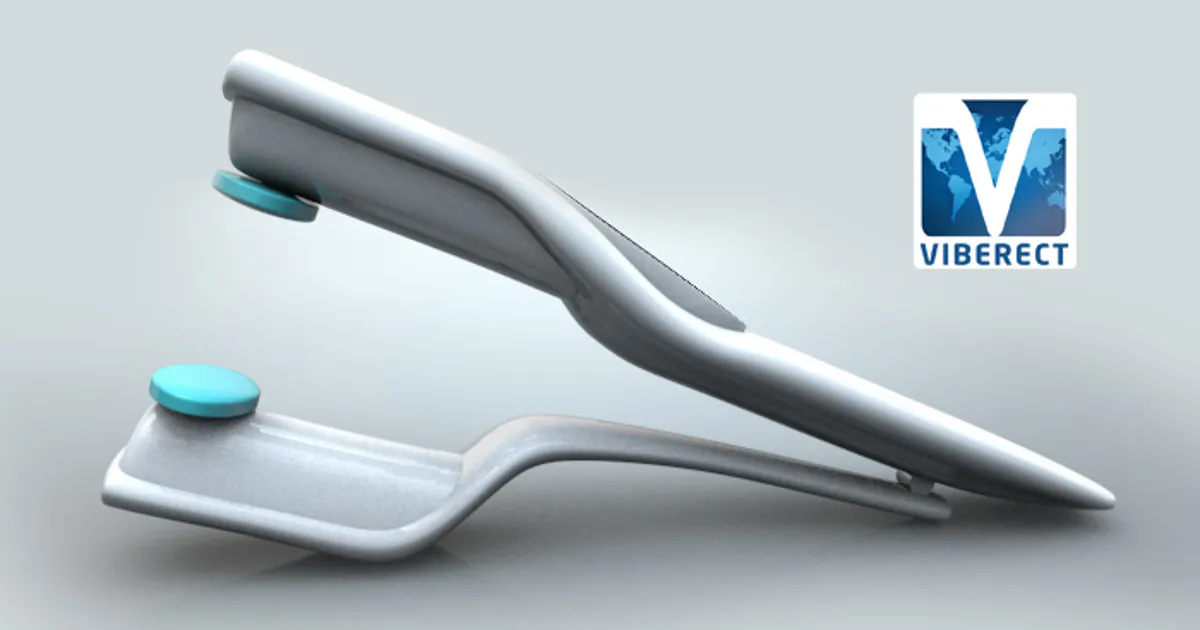Judy Heumann was a disability rights activist who dedicated her life to advocating for the rights of people with disabilities.
She was born on December 18, 1947, in Brooklyn, NY, and passed away on March 4, 2023, at the age of 75.
Judy Heumann played a key role in the development and implementation of national disability rights legislation, including the Individuals with Disabilities Education Act, the Americans with Disabilities Act (ADA), the Rehabilitation Act, Section 504, and the UN Convention on the Rights of Persons with Disabilities.
She helped found the Berkley Center for Independent Living, the Independent Living Movement, and the World Institute on Disability, and served on the boards of various organizations.
Judy Heumann’s early life
Judy Heumann contracted the disease Polio, which in 1949 left her paralyzed from the neck down. Despite her disability, she was determined to lead a full and active life. She became a tireless advocate for disability rights, focusing on issues such as access to education, transportation, and employment.
Heumann’s activism began in the 1960s, when she fought for her right to attend public school in New York City. She went on to become a leading figure in the disability rights movement, serving as the Assistant Secretary for the Office of Special Education and Rehabilitative Services under President Bill Clinton.
She faced discrimination when the New York Board of Education refused to grant her a teaching license, fearing that she would not be able to evacuate herself or students in case of fire. She sued and became the first teacher in the state to use a wheelchair.
Crip Camp documentary
Judy Heumann attended Camp Jened, a summer camp for people with disabilities, in the 1960s, where she later worked as a counselor in the 1970s.
It wasn’t until the last three years of her life that Judy Heumann became rightly recognized as a major civil rights hero.

In 2020, she release her autobiography, Being Heumann: An Unrepentant Memoir of a Disability Rights Activist, co-authored with Kristen Joiner. She was also featured in the documentary Crip Camp: A Disability Revolution.
Judy Heumann’s dedication to the cause led her to serve in various government positions, including as Assistant Secretary of the Office of Special Education and Rehabilitation Services in the Clinton Administration, as Advisor on Disability and Development at the World Bank, and as Special Advisor for International Disability Rights at the U.S. State Department during the Obama Administration. She also served as Washington, D.C.’s first Director for the Department on Disability Services.
Judy Heumann was also a trailblazer for sexual expression and disability rights. In the 1980s, she co-founded the first organization in the United States specifically focused on the sexual rights of people with disabilities, called the Disabled Women’s Network, which no longer appears to be operational.
Judy Heumann co-founded the Disabled Women’s Action Network (Dawn) in the late 1980s with several other disability rights activists and advocates, including Kitty Cone, Georgina Kleege, Corbett O’Toole, Cheryl Marie Wade, and Lynn Yankee. These women were instrumental in shaping the disability rights movement and advocating for the rights of people with disabilities, particularly women with disabilities. Together, they worked to raise awareness about issues such as ableism, discrimination, and inequality, and to push for policies and practices that would promote greater inclusion and accessibility for all people with disabilities.
(On the other hand, DAWN Canada, which is short for Disabled Women’s Network Canada, exists as an apparently different organization. )
Judy Heumann was a vocal advocate for the right of people with disabilities to have sexual relationships. She fought against the idea that people with disabilities should be asexual or celibate.
Judy Heumann’s legacy is one of resilience and advocacy. She fought tirelessly for the rights of people with disabilities, and she inspired countless others to do the same. She was a true trailblazer, breaking down barriers and paving the way for future generations of disability rights activists.
According to her company’s website, despite her busy professional life, Judy Heumann enjoyed attending musicals and movies, traveling the world, and making new friends. She was a member of the Adas Israel congregation and had a passion for learning Hebrew. Judy Heumann is survived by her husband, Jorge Pineda, her brothers, Ricky and Joseph, her niece Kristin, and many other family members and close friends.
Judy Heumann’s contributions to the disability rights movement will not be forgotten, and her legacy will continue to inspire generations to come.


